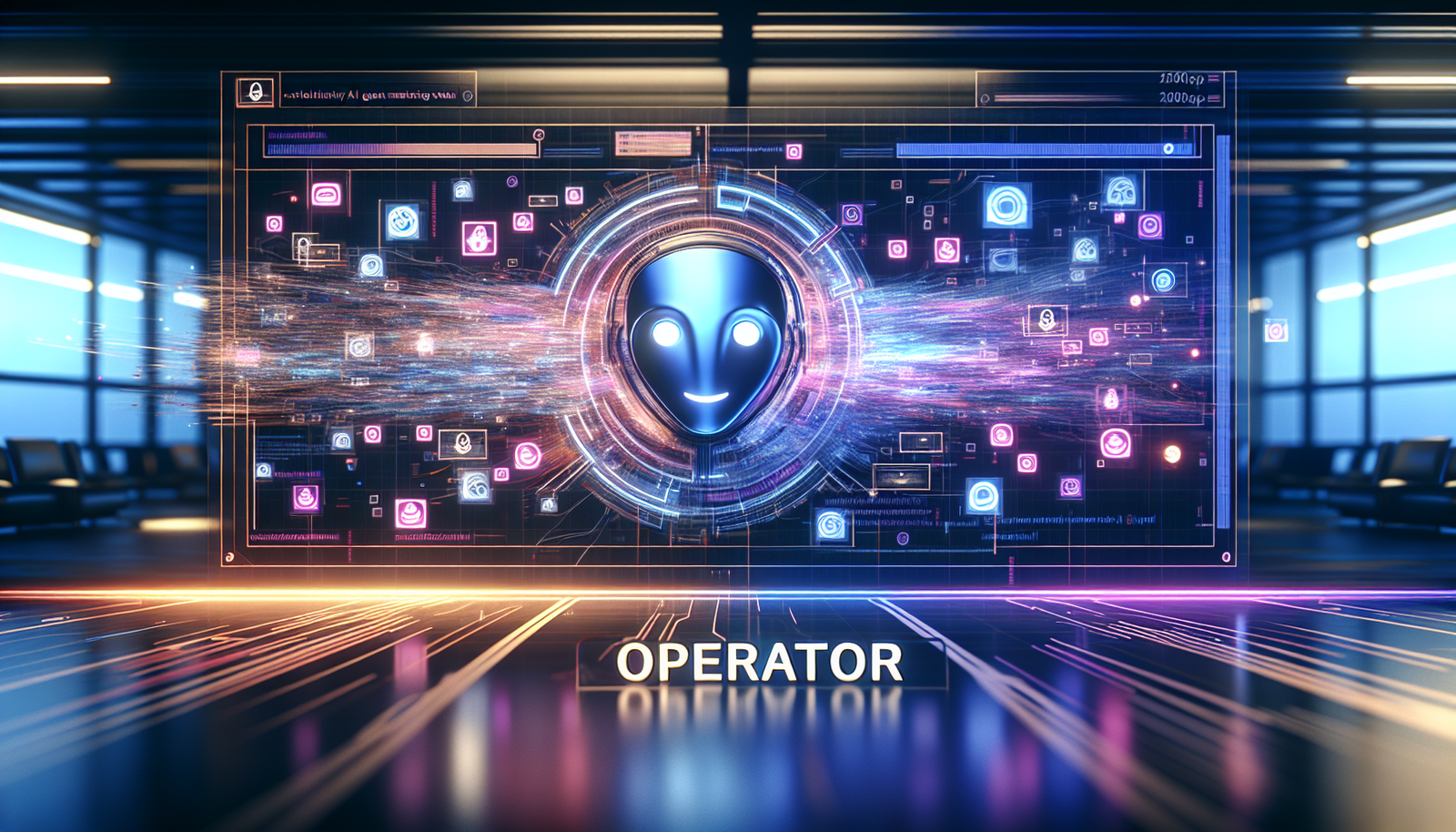OpenAI is revolutionizing the digital landscape with *Operator*, its bold AI agent capable of mastering the web. The ability of this agent to execute complex tasks opens a new era, transforming users’ productivity and efficiency.
*An autonomous virtual assistant* interacting with graphical interfaces represents a radical shift for digital consumption. With *Operator*, the simplicity of executing online actions becomes a major asset for individuals and businesses. OpenAI sets an unprecedented standard, redefining task automation and promising a true transformation in daily digital life.
OpenAI unveils Operator
On January 23, 2025, OpenAI lifted the veil on Operator, an innovative artificial intelligence agent specifically designed to interact with the web. This development follows the announcement of the Stargate project, propelling a new paradigm of digital interaction. Sam Altman, at the helm of OpenAI, emphasizes that this system is becoming a major trend revolutionizing productivity and creativity.
Features of Operator
Operator replaces the usually time-consuming tasks performed by users. It can fill out forms, order items online, or even create multimedia content. Simply, the user expresses their needs in natural language, and the agent takes the reins of its own browser to fulfill the request.
Underlying technology
At the core of this agent lies an innovative model called “Computer-Using Agent” (CUA). This AI merges the advanced perception capabilities of GPT-4o with sophisticated reasoning obtained through reinforcement learning. This model visualizes the screen of its browser through screenshots, interacting with graphical elements such as buttons and text fields.
In case of difficulty or error, Operator exhibits a sophisticated self-correction capability. The agent does not hesitate to redirect its actions when necessary, ensuring a smooth and intuitive use. OpenAI claims that the CUA model already surpasses the standards established by benchmarks such as WebArena and WebVoyager.
Practical applications of Operator
This launch primarily prioritizes repetitive uses. Operator can perform various actions, from reserving meals via DoorDash to ordering groceries on Instacart. Each collaboration with web players aims to optimize the user experience on their respective platforms.
A partnership is also being undertaken with the city of Stockton, California, aiming to facilitate citizens’ access to public services. This initiative demonstrates Operator’s adaptability in various contexts, including public administration.
Security and privacy
To frame this agent, OpenAI has established three levels of protection. The first requires the user’s consent during critical moments, such as entering sensitive information. The second level ensures data protection, allowing users to delete their history with one click. Security is paramount, with an active monitoring model that detects and stops suspicious actions on the web.
Operator requires a Pro subscription, costing 200 dollars, primarily accessible to users based in the United States. A gradual extension to other subscription levels is planned, allowing for broader adoption of this innovative technology. OpenAI also plans to make the CUA model available via an API, offering developers the opportunity to create their own interactive agents.
User FAQ
What is Operator from OpenAI?
Operator is an artificial intelligence agent designed by OpenAI that automates tasks on the web, such as filling out forms, ordering groceries, or making restaurant reservations.
How does the Operator agent work?
Operator uses a model called “Computer-Using Agent” (CUA) that combines computer vision with advanced reasoning. It can see and interact with the elements of a graphical interface, like a real user, using a virtual keyboard and mouse.
What are the main features of Operator?
The features of Operator include the ability to fill out forms, place online orders, and create memes, all while taking control of its own browser to execute the requested tasks.
Is Operator accessible to all OpenAI users?
No, Operator is currently reserved for Pro subscribers of ChatGPT in the United States, but OpenAI plans to extend access to other subscription levels in the near future.
What protection levels have been implemented for Operator?
OpenAI has established three protection levels: the agent relinquishes control during critical inputs, allows users to erase their browsing history, and integrates safeguards against malicious sites.
How does Operator handle errors or complex situations?
In case of a problem or obstacle, Operator uses its reasoning capabilities to self-correct and, if necessary, hands control back to the user without insisting on an action.
Which OpenAI partners are involved in the Operator project?
OpenAI collaborates with several major companies such as DoorDash, Instacart, OpenTable, Priceline, StubHub, and Uber to optimize the user experience on different platforms.
What are the future prospects for Operator?
OpenAI intends to expand Operator’s capabilities via its API, allowing developers to create agents that interact with graphical interfaces, thereby broadening the possibilities for application.






